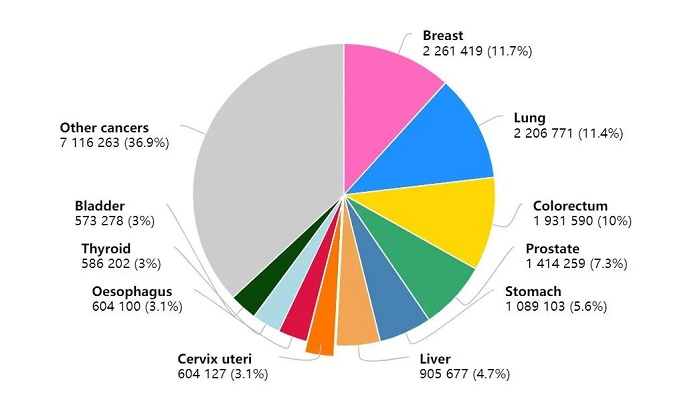Cancer is a formidable disease that strikes fear in the hearts of many, but there’s a glimmer of hope in the fact that the recurrence rate of cancer is not as high as some may believe. Understanding this aspect is crucial for cancer patients, their families, and the medical community alike.
In the vast landscape of cancer research, many institutions and individual researchers have dedicated their efforts to understanding cancer recurrence. One notable source is the Memorial Sloan Kettering Cancer Center. Their research teams have published numerous reports on various aspects of cancer recurrence. For example, they have investigated how genetic mutations in cancer cells can influence the likelihood of recurrence in different types of cancer such as breast and lung cancer. The researchers at Memorial Sloan Kettering, including world – renowned oncologists and molecular biologists, have used state – of – the – art techniques to analyze patient samples and clinical data to generate these reports.
The MD Anderson Cancer Center is also a significant contributor. Their research on cancer recurrence has focused on the role of the tumor microenvironment. They have published studies that explore how the surrounding tissues and cells interact with cancer cells during and after treatment, and how these interactions can either promote or prevent recurrence. The scientists at MD Anderson have combined laboratory experiments with clinical trials to gather data and produce comprehensive research reports.
In addition, there are international research collaborations that have published important work on cancer recurrence. The International Cancer Genome Consortium (ICGC), for instance, has brought together researchers from around the world. Their collective efforts have led to reports that provide a global perspective on cancer recurrence. By analyzing the genomes of cancer patients from different ethnic backgrounds and geographical locations, they have identified common and unique genetic factors associated with recurrence. These reports have been instrumental in shaping the understanding of cancer recurrence on a large scale.
Recent research and medical data have shown that many types of cancer have relatively low recurrence rates when appropriate treatment is administered. For instance, certain early – stage cancers like breast cancer, when detected and treated promptly, have a lower likelihood of coming back. Advances in surgical techniques, radiation therapy, and chemotherapy have all contributed to reducing the recurrence risk. Minimally invasive surgeries for breast cancer can often remove the tumor more precisely, minimizing the chance of leaving behind cancerous cells that could lead to recurrence.
In the case of prostate cancer, too, with modern treatment modalities such as targeted radiation and active surveillance in some low – risk cases, the recurrence rate has been shown to be manageable. This is significant because it gives hope to patients and allows them to better plan their lives after treatment.
Skin cancer, particularly basal cell and squamous cell carcinomas, when treated early and effectively, also has a relatively low recurrence rate. Simple procedures like excision or Mohs surgery can often remove the cancer completely, reducing the risk of recurrence to a minimum.
It’s important to note that the lower recurrence rates are often associated with a combination of factors. Early diagnosis through regular screenings plays a vital role. Mammograms for breast cancer, colonoscopies for colon cancer, and Pap smears for cervical cancer have all led to earlier detection and subsequent better outcomes with lower recurrence.
Moreover, the quality of post – treatment care and follow – up is crucial. A comprehensive follow – up plan that includes regular check – ups, imaging tests, and blood work can detect any potential recurrence at an early stage. This enables medical teams to intervene quickly and effectively.
While the recurrence rate of cancer may not be high in many cases, it’s still essential for patients to maintain a healthy lifestyle. A balanced diet, regular exercise, and avoiding risk factors such as smoking and excessive alcohol consumption can further reduce the risk. Additionally, psychological support for cancer survivors is important as stress can have an impact on the body’s overall health and potentially influence the recurrence risk.
In conclusion, the news that the recurrence rate of cancer is not high provides a sense of relief. However, continuous research, improved treatment strategies, and patient education are still needed to further improve these rates and give cancer patients the best possible chance of long – term survival and a good quality of life.
Read more
- Diet Drugs – A Double Edged Sword: Hazards & International Perspectives
- Irregular Periods: A Hidden Health Risk For Women Beyond Menstrual Inconvenience
- Medical Devices: Unveiling The Most Popular Ones In Each Country


